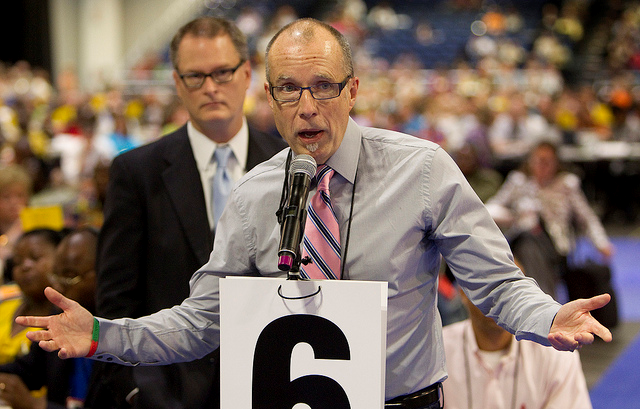Since 1972 General Conferences have been voting on legislation regarding human sexuality. Here’s a 44-year timeline.
KATHY L. GILBERT
United Methodist News Service
It was April 1972 in Atlanta, Georgia, when Russell Kibler, a delegate to the United Methodist General Conference from South Indiana, stepped to the microphone with a question.
The denomination’s top lawmaking body was going over a report from a four-year committee that had studied the Social Principles and recommended changes to the church’s position on homosexuality as well as other issues.
Before the body was this statement: “Homosexuals no less than heterosexuals are persons of sacred worth, who need the ministry and guidance of the church in their struggles for human fulfillment, as well as the spiritual and emotional care of a fellowship which enables reconciling relationships with God, with others and with self. Further, we insist that all persons are entitled to have their human and civil rights ensured.”
Kibler wanted to know what was meant by “homosexuals would have their human and civil rights ensured.”
His question led to the first public debate on homosexuality in the denomination and ended with the addition to The Book of Discipline: “The United Methodist Church does not condone the practice of homosexuality and considers this practice incompatible with Christian teaching.”
Forty-four years later, the 2016 United Methodist Church’s top legislative body will still be debating those words when it meets in Portland, Oregon, May 10-20.
More than 100 pieces of legislation on human sexuality will be considered by the 864 elected delegates.
One of the first tasks of the 2016 General Conference delegates will be to debate about how to debate sexuality.
Read more.
Last Updated on January 9, 2023

